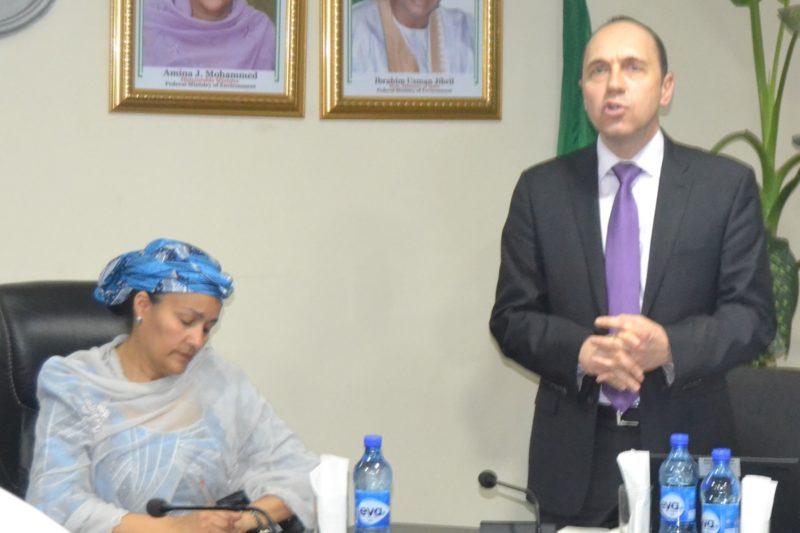The World Bank has urged Nigeria to put in place the right policy framework that will improve and enable the private sector drive the $140 billion investment required for climate change in the country.

This was disclosed by the World Bank executive, Benoit Bosquet, at the second leg of the Climate Change Knowledge Immersion workshop in Kaduna on Wednesday, February 15 2017. The Knowledge Immersion Workshop was organised by the Federal Ministry of Environment’s Department for Climate Change and the World Bank.
According to Mr Bosquet, the Nigerian private sector can harness the required funds for investment to address the impact of climate change in the country. “Nigeria needs $140 billion to achieve its climate change commitment and control its impact on the country through the Nationally Determined Contributions (NDCs) of Paris Agreement. These are investments that are driven by the private sector, therefore government must put in place policies that will support the investment,” he said.
Mr Bosquet, who is the Practice Manager for Environment and Natural Resources, disclosed that “globally the private sector is making more of the needed investments than the public sector” hence the need for policies that enhance the private sector to make such investments in Africa’s largest economy.
“In order to take effective climate action, which means both reducing greenhouse gas emissions and adapting to climate change, Nigeria needs about $140 billion by 2030. This is underpinned by Nigeria’s Nationally Determined Contribution and studies conducted by the World Bank in 2013. Action is technically feasible and economically beneficial but the sooner it is undertaken, the better.”
“The longer it will take to undertake climate action, the more expensive it will be,” he warned.
He also warned that Africa is very vulnerable to climate change and climate change will worsen Nigeria’s vulnerability if not addressed in time. “Nigeria needs to build resilience now for the harsher climate of the future. If not addressed in time, climate change can worsen Nigeria’s vulnerability to weather swings, and limit its ability to achieve and sustain the objectives of Vision 20:2020.”
The World Bank has projected that climate change could increase poverty headcount by 100 million in 2030. “Climate change and poverty are intimately related. The poor will be affected the most, in particular, women, children and elderly citizens,” he added.
To address climate change impact in Nigeria, Bosquet suggested “zero deforestation by 2020, best practices of agriculture, renovating of three to five percent buildings per year, good public transportation system and low carbon industrialisation.”
With the falling cost of investments in green technology, the World Bank expert affirmed that these investments will pay off due to its “negative cost benefit.” Examples of such very positive benefit of climate change investment is the falling price of solar photo voltaic panels which now cost about $1 per unit as against $4, some four to five years ago.
He also advised that the benefit of early action to deal with climate change outweighs the cost, saying “action today is tomorrow safe”.
The World Bank is already supporting some projects on addressing the impact of climate change across Nigeria with interventions such as climate smart agriculture, climate resilience for coastal area and the Nigeria Erosion and Watershed Management Project (NEWMAP).
The workshop, which had “Accelerating Climate Change resilience to carbon development in Nigeria” as its theme, had in attendance officials from state Ministries of Environment across northern Nigeria, major stakeholders and students.
“It is highly encouraging to see so many youth represented here at the workshop in Kaduna. They are the leaders of tomorrow and will ultimately shape the future of our climate within Nigeria and globally,” he concluded.
By Ayo Okulaja
